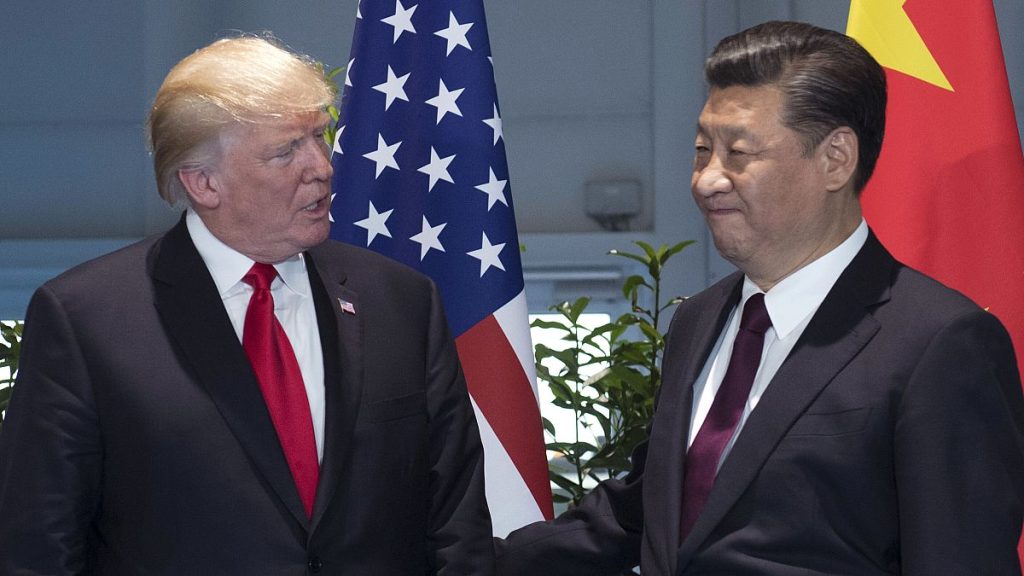The prospect of Chinese President Xi Jinping attending the inauguration of US President-elect Donald Trump sparked a flurry of speculation and analysis, highlighting the complex and often strained relationship between the two nations. Trump’s unconventional suggestion, hinted at during a New York Stock Exchange appearance, and later confirmed by his incoming press secretary, would break with historical precedent. No foreign leader has ever officially attended a US presidential inauguration, according to State Department records. Trump, known for his unconventional approach to politics, framed the potential invitation as a calculated risk, suggesting a willingness to challenge established norms. This immediately raised questions about the motivations and implications of such a move, particularly given the backdrop of recent tensions between the US and China.
The invitation itself, delivered amidst ongoing trade disputes and accusations, appeared to some as a perplexing gesture. Trump’s first term saw the imposition of significant tariffs on Chinese goods, a policy he vowed to escalate if China didn’t curb the flow of fentanyl precursors into the United States. China vehemently denied any complicity in the opioid crisis, further exacerbating the already tense relationship. Furthermore, Trump’s cabinet appointments, including China hawks Marco Rubio and Mike Waltz for key positions, signaled a continued hard-line stance against Beijing. Against this backdrop of confrontation, the invitation to Xi seemed incongruous, prompting speculation about Trump’s true intentions. Was it a genuine attempt at reconciliation, a power play, or simply another example of Trump’s unpredictable style?
Experts on US-China relations were quick to weigh in, expressing skepticism about Xi’s likelihood of accepting the invitation. They argued that such a visit would be symbolically problematic for the Chinese leader, potentially diminishing his stature on the global stage. Attending the inauguration could be interpreted as an endorsement of Trump’s policies and a subordination of Chinese interests to American ones. Danny Russel, of the Asia Society Policy Institute, argued that Xi would be unlikely to accept the “status of a mere guest celebrating the triumph of a foreign leader.” This sentiment was echoed by Yun Sun of the Stimson Center, who doubted China would be willing to take such a “risk.”
The potential optics of Xi standing alongside Trump as he assumed office would have been particularly sensitive for the Chinese government, especially considering the ongoing trade war and accusations related to fentanyl. For Xi to attend would potentially signal a softening of China’s stance, a concession they seemed unwilling to make. Furthermore, attending the inauguration could be construed as a validation of Trump’s often controversial rhetoric and policies towards China, something Beijing would likely want to avoid. The symbolic importance of the invitation, and the potential ramifications for the already delicate balance of power between the two nations, made Xi’s attendance highly unlikely.
The incident underscores the intricacies of US-China relations, a dynamic characterized by competition, cooperation, and mutual suspicion. Trump’s unorthodox approach to diplomacy, often marked by abrupt shifts and unconventional tactics, further complicated the situation. The invitation, while unprecedented, offered a glimpse into Trump’s seemingly impulsive style and his willingness to challenge diplomatic norms. However, the likelihood of Xi accepting the invitation was minimal, given the potential political and symbolic costs. The entire episode served as a reminder of the delicate balancing act required in navigating the complex relationship between the world’s two largest economies.
Ultimately, the invitation became a symbolic gesture, highlighting the ongoing tensions and the unpredictable nature of US-China relations. While it offered a fleeting moment of speculation about a potential thaw in relations, the underlying realities of trade disputes and geopolitical rivalry remained unchanged. The incident served as a telling illustration of the complexities of diplomacy in the 21st century, particularly when dealing with two superpowers vying for global influence. The very notion of Xi attending Trump’s inauguration, while unprecedented, highlighted the unique and often unpredictable nature of Trump’s foreign policy approach, and the inherent challenges in navigating the delicate balance between cooperation and competition with China.














